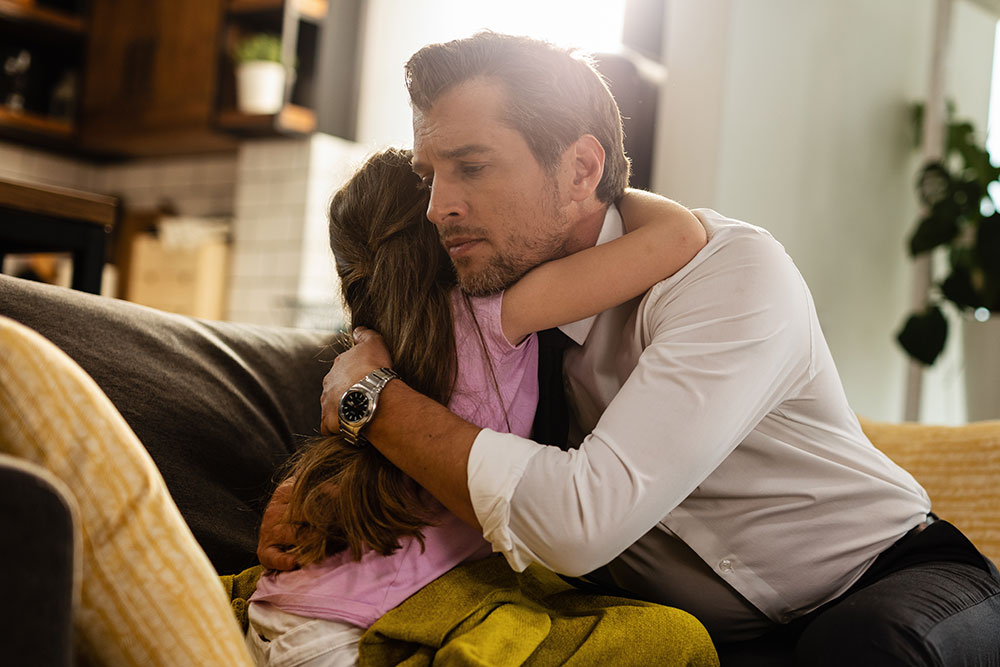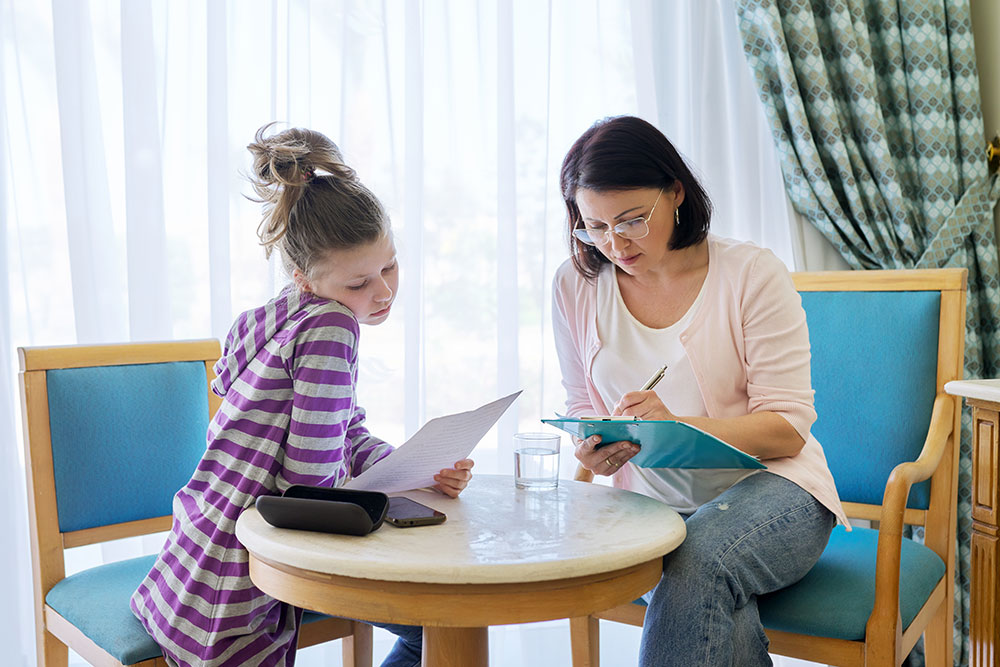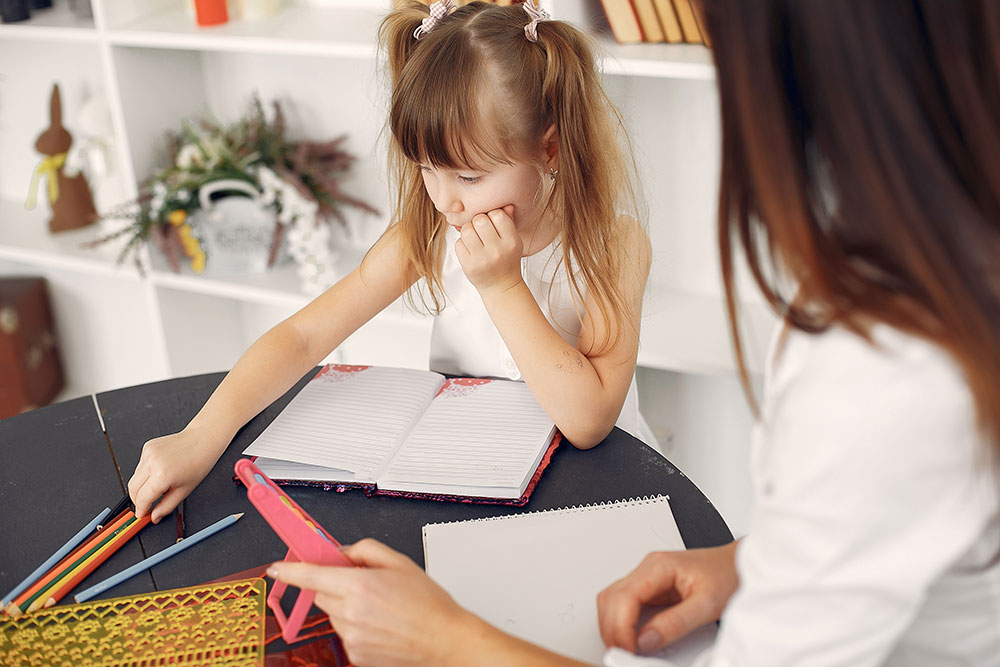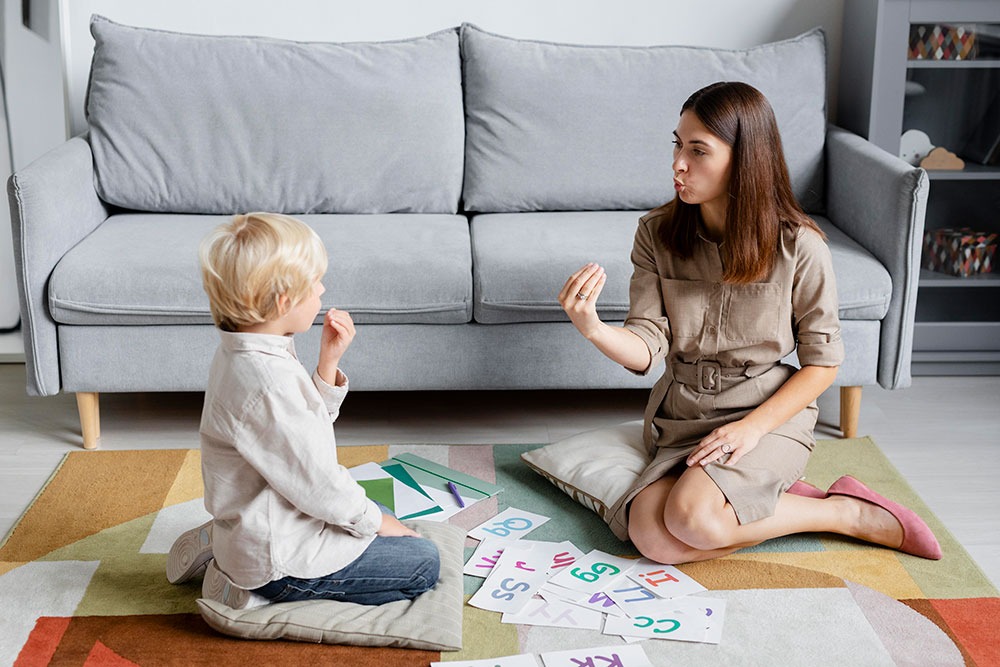
Why it's worth visiting a psychological and educational counseling center, how to prepare for your first appointment, and what to expect after your child's diagnosis. Check it out!
From this article you will learn:
- What are psychological and pedagogical counseling centers?
- Who are the psychological and pedagogical counseling centers for?
- What help can you get at psychological and pedagogical counseling centers?
- What does a visit to a psychological and pedagogical counseling center look like?
- Can parents also benefit from the counseling center - classes for parents

What are psychological and pedagogical counseling centers?
Psychological and pedagogical counseling centers are facilities that help parents, schools and kindergartens check the proper development of children and help in case of problems.
The first contact between a parent and a counselling centre usually takes place at the request of the school or kindergarten, when the child has, for example, difficulties with learning or functioning in the classroom, but the visit to the clinic itself always takes place at the request of the parents.

Parents themselves can also contact the clinic directly for diagnosis or on the basis of a doctor's recommendation, e.g. if they suspect a child has various types of developmental disorders, Asperger's syndrome or ADHD.
A team of specialists from the clinic: psychologists, educators and therapists, will help parents identify the problem during several visits and refer them for further tests, therapy or classes for both children and parents.
Who are the psychological and pedagogical counseling centers for?
The clinics help both young children and adolescents. They also provide support to parents, schools, and preschools.

The location of the school or kindergarten the child attends determines which psychological and pedagogical counseling center parents should go to with their child.
A visit to the clinic is voluntary and free of charge, and after examinations, an opinion or decision is issued, along with instructions on how to proceed with the child.
The most common reasons for visiting a clinic are:
- dyslexia
- dysorthography
- dyscalculia
- hyperkinetic disorder (ADHD)
- autism spectrum disorders
- intellectual disability

If the parent has not yet identified the child's problem, they should contact a clinic if the child has any of the following problems:
- delayed speech development
- significant learning difficulties
- hyperactivity
- social difficulties
- slower overall development than peers
What does a visit to a psychological and pedagogical counseling center look like?
A medical referral is not required for the PPP clinic and registration is based on a written request from parents.
Before your first visit to the clinic, you should inquire by phone or on the clinic's website about what documents to bring. The first visit usually takes place without the child present and involves a conversation between the parent and a psychologist or educator about the child's problem.

The next stage is a visit during which the child performs tasks and pedagogical and psychological tests to determine his or her potential and deficits.
The final stage involves a second meeting between the psychologist and the parents to discuss the results and propose further steps, such as therapy. Upon written request from the parents, an opinion or information about the diagnosis is also issued, which can also be sent to the child's school upon request.
What does a visit to a psychological and pedagogical counseling center end with?
After completing the required examinations, tests and interviews at the clinic, parents can receive:
- child's diagnosis
- opinion and ruling regarding the child's education and upbringing
- recommendations for care and assistance in the child's education at school and at home, e.g. hand, speech, reading exercises, etc.
- recommendations for participating in selected courses for children and parents
- recommendations for further diagnosis or treatment, e.g. psychiatric

"The purpose of diagnosing a child is primarily to determine their individual developmental and educational needs and individual psychophysical abilities, to explain the mechanisms of their functioning in relation to the reported problem, and to suggest ways to solve it. Diagnosing a child's needs allows us to identify courses of action for the child's education and upbringing, as well as to support their development." - Ministry of National Education
What help can you get at psychological and pedagogical counseling centers?
The scope of assistance provided at the clinic is very wide.
Above all, a diagnosis is invaluable, as it indicates to parents the direction of further action and provides an explanation for problems with the child that have often lasted for many months or even years.

In addition to diagnosis, clinics also support families by:
- therapeutic activities for children, e.g. speech therapy, activities for hyperactive children, hand therapy, etc.
- youth therapy
- family therapy and mediation, e.g. support in the event of parents' divorce
- support groups
- crisis intervention
- workshops for parents
- advice and consultations

Can parents also benefit from the counseling center - classes for parents
When faced with behavioral challenges, parents are often encouraged to participate in a series of parenting workshops. Working in a group with compassionate therapists and parents with similar challenges helps them identify many everyday problems and find answers together. Above all, they can better understand their child and become better parents.


Podziel się:
Christmas contest results
Christmas contest results